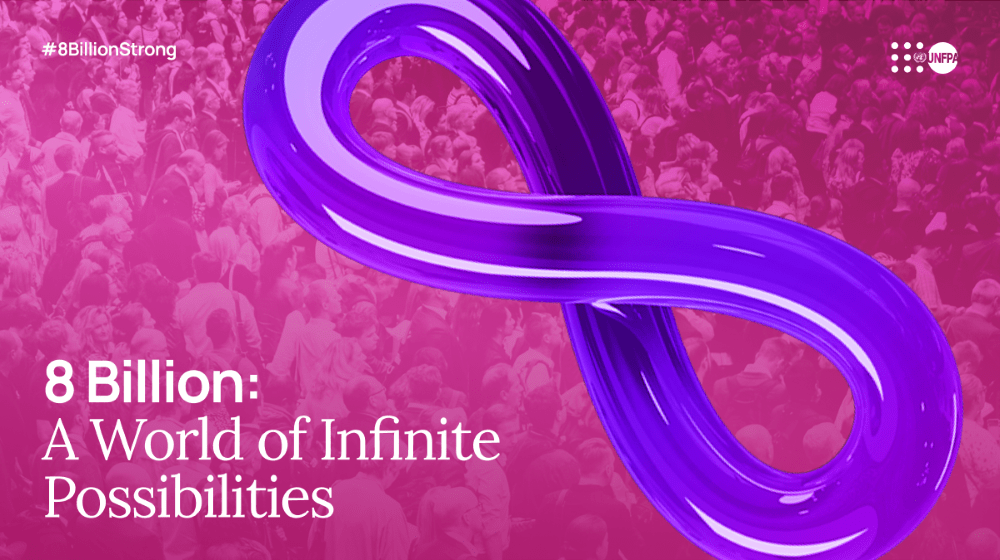Malabo, November 14th, 2022- The global population is projected to reach 8 billion on 15 November this year. The "Day of 8bn" presents a vital opportunity to draw the world's attention to the infinite possibilities of humanity to build the world we want, with sexual and reproductive health and rights for all at its core.
As eight billion, we have the power to shape our common futures. And by protecting individual rights, we can unlock the unlimited potential of people around the world to address the challenges facing their societies and the global problems imperiling us all.
Rapid growth is both cause and symptom of slow progress in development
For low-income and lower-middle-income countries, the continuing high levels of fertility that drive rapid population growth are both a symptom and a cause of slow progress in development. Rapid growth poses various challenges to the achievement of SDGs related to schooling, public health, housing, water and sanitation, employment and poverty. Rapidly growing numbers of children and youth in low-income countries can hamper progress towards ensuring inclusive and equitable education and healthy lives and well-being for all. Yet returns from investing in the human capital of children and young people are manifold, generating virtuous cycles that can lift individuals, families and societies out of poverty and reduce inequality. A significant increase in public expenditures will be required to meet the needs of the growing population of children and youth in low-income countries.
Planning for the next billion can benefit from demographic foresight
Changes in population size and composition are largely foreseeable, having been shaped by demographic processes that unfold over decades. Understanding these changes requires the systematic collection and analysis of data from population censuses and civil registration systems. Informed planning for population changes can help to accelerate progress towards achieving the Sustainable Development Goals, in particular those related to poverty, health, education, gender equality and the environment. Policymakers should incorporate present and future population trends in all aspects of development planning, identifying areas where programmes can be scaled up to reach growing numbers of people in need, as well as areas where the shifting demographic profile offers opportunities to accelerate progress towards sustainable development while ensuring that no one is left behind.
People are the solution, not the problem. Experience shows that investing in people, in their rights and choices, is the path to peaceful, prosperous and sustainable societies.
– Dr. Natalia Kanem, UNFPA Executive Director
About UNFPA
The United Nations Population Fund (UNFPA) is the sexual and reproductive health agency of the United Nations. UNFPA is in more than 150 countries to improve the lives of all people. Its mission is to contribute to a world in which all pregnancies are wanted, all births are safe, and all young people realize their potential.
In Equatorial Guinea UNFPA implements it 7th Country Program 2019-2023 designed around three main pillars: Sexual and reproductive health; Gender equality and women’s empowerment and Population and development. Visit us at: http://www.unfpa.org/ and at http://equatorialguinea.unfpa.org/ Follow us on: Twitter, https://twitter.com/unfpa_EQGuinea and Facebook
For more information, contact:
Flora Isabel, Communication Officer, UNFPA Equatorial Guinea:obamamokuy@unfpa.org 240/ 222 116 861.


